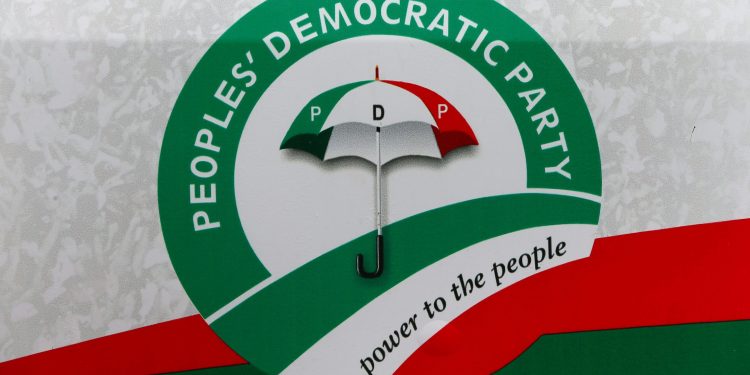Nigeria’s major opposition party has reacted to a Canadian Federal Court ruling that labelled it a terrorist organisation, with the Peoples Democratic Party saying it is still studying the matter.
Reacting to the judgment, Debo Ologunagba, the PDP’s National Publicity Secretary, told Peoples Gazette on Friday that the party was still reviewing the details of the court’s verdict.
“We have read the story by Peoples Gazette on the matter. We can’t comment on it right now — we’re studying the court document, and we will respond appropriately soon,” Mr Ologunagba said. “It is a big story, and it just broke yesterday, hence we have to take our time to look into it, as we were busy with an important party activity yesterday.”
Earlier, the ruling All Progressives Congress told The Gazette that the Canadian court’s ruling amounted to “political meddlesomeness”.
“They didn’t reckon with the constitutional provisions of political parties. The APC is not registered in Canada, and it is not registered as a terrorist organisation, but registered as a political party in Nigeria,” Bala Ibrahim, APC’s National Director of Publicity, told The Gazette on Friday. “The APC has won elections, including presidential elections. It is unfortunate to describe a political party poised for peace as otherwise. It is meddlesome for a court in another country to interpret the activities of political parties in another country as acts of terrorism.”
Peoples Gazette had on Thursday reported how Justice Phuong Ngo, in a judgment delivered on June 17, 2025, dismissed the application for judicial review of Douglas Egharevba (a former member of the PDP and APC) after Canada’s Immigration Appeal Division found him inadmissible under security provisions of the Immigration and Refugee Protection Act.
Mr Egharevba joined the PDP at its founding in 1999 and left in 2007 when he defected to the APC, remaining there until 2017. He claimed that his personal record was untainted by the violence and manipulation that plagued Nigerian politics, insisting he had never personally engaged in terrorism or subversion.
But Justice Ngo was unconvinced, writing that “the conduct of individuals who are members of the PDP, including high-ranking officials, and those who committed political violence and intimidation on their behalf, is too widespread and persistent over too great a period of time to dissociate the leadership of the party from their actions.”
According to court filings, Mr Egharevba entered Canada in September 2017 and disclosed his political history in a Background Declaration Form. Under questioning by the Canada Border Services Agency in 2018, he confirmed his eight-year PDP membership before switching to the APC.
Canadian immigration authorities flagged his affiliations, citing intelligence and international reports that linked the PDP and APC to electoral misconduct and politically motivated killings.
The IAD focused on the PDP’s record during the 2003 and 2004 polls as “sufficient and determinative” for Mr Egharevba’s case, but the court acknowledged evidence that political violence was not unique to one political party in Nigeria, reflecting a broader culture of malpractice within the country’s political class.
In January 2019, an immigration officer declared Egharevba inadmissible under section 34 of the IRPA, covering terrorism and subversion of democracy. While the Immigration Division (ID) initially ruled in his favour in 2020, saying there was insufficient evidence to prove party leadership directly orchestrated killings or intended to undermine democracy, the Minister of Public Safety and Emergency Preparedness appealed with new evidence.
The minister had argued that the PDP and the APC were deeply implicated in acts of political violence, subversion of democracy, and electoral bloodshed, inflicting harm and terror on Nigerians.
Following the development, on March 25, 2024, the IAD overturned the decision of the ID, concluding that the PDP engaged in acts of subversion and terrorism, and that mere membership, regardless of personal involvement, triggered inadmissibility.
Justice Ngo’s ruling last month upheld that conclusion.






